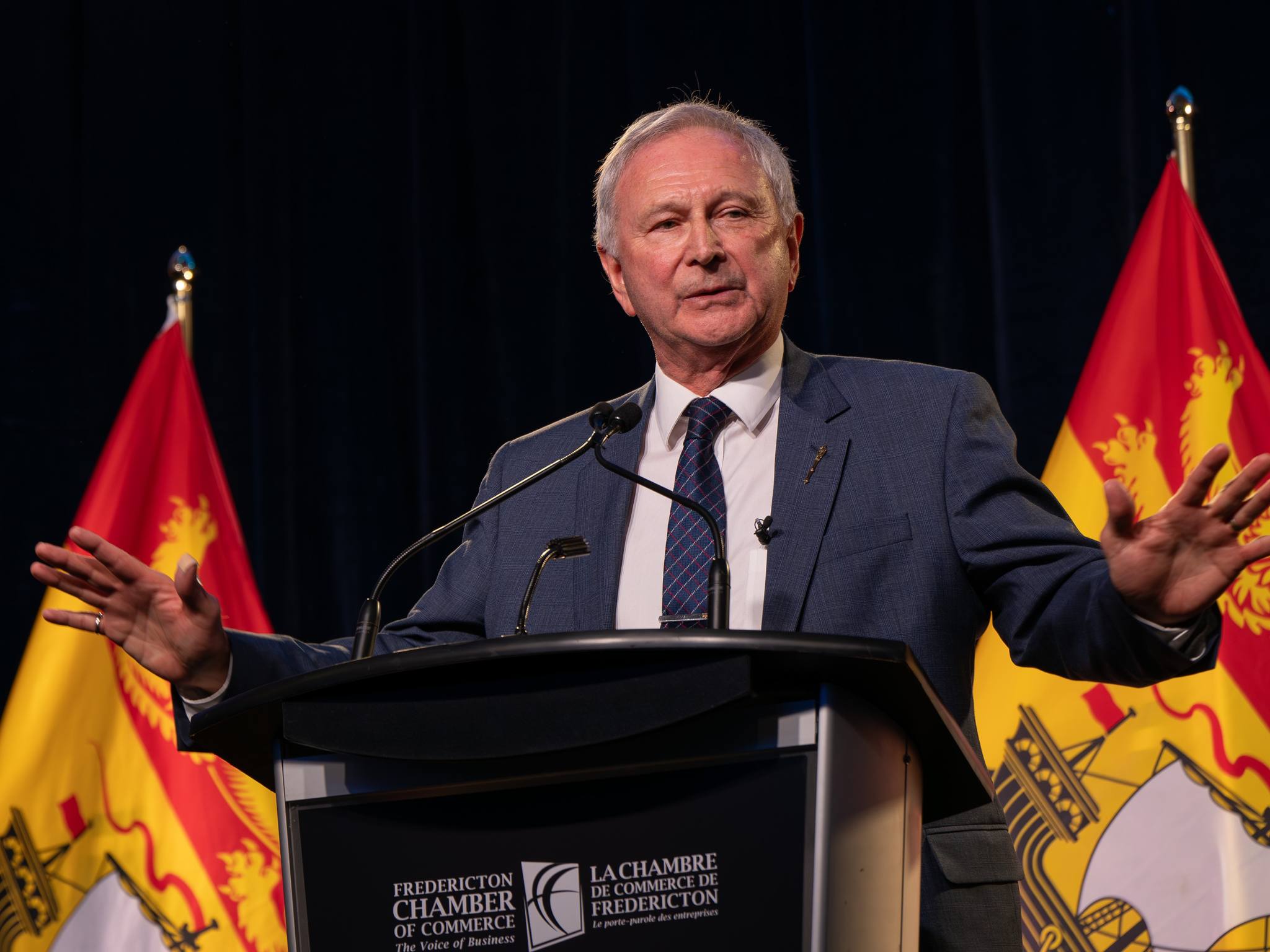By Andrew Nurse, Mount Allison University; The Conversation

The election is a referendum on Higgs’s leadership and a Conservative party that bears little resemblance to the one that won in 2020. (File Photo: Blaine Higgs/Facebook)
The Campaign Life Coalition (CLC), a right-leaning lobbying group that describes itself as pro-life, recently mailed flyers to 160,000 New Brunswick homes accusing provincial schools of “pushing” an unspecified transgender agenda. Progressive Conservative Premier Blaine Higgs has been urged to denounce the flyers.
New Brunswick Liberal Leader Susan Holt — Higgs’s main rival in the October provincial election — condemned the flyers as an attack on students and teachers, but she ignored its implications for 2SLGBTQ+ New Brunswickers.
Green Party leader David Coon more bluntly called on the premier to publicly reject what he saw as a blatant attack on 2SLGBTQ+ students.
The CLC, meantime, hasn’t minced words. It’s made clear that its primary goal is to return Higgs to power.
Maritime populism
The anti-trans flyer illustrates what’s at stake in the Oct. 21 election. All elections are significant, but this one illuminates the pathway to power for a particular form of Maritime political populism connected to an odd variant of evangelical Christianity and supported by organizations based in other parts of the country.
The CLC is not interested in public health, education, jobs or housing — New Brunswickers’ key concerns. It wants to keep a right-wing, overtly anti-queer government in power.
The election is a referendum on Higgs’s leadership and a Conservative party that bears little resemblance to the one that won in 2020.
Higgs came to power because of the vagaries of the New Brunswick’s first-past-the-post electoral system. After retiring as an executive at Irving Oil, the province’s largest and most politically influential corporation, Higgs won his local riding and was made finance minister in 2010.
He became party leader in 2016 and premier in 2018, when the Conservatives won the most seats in the provincial legislature despite securing less than 32 per cent of the popular vote.
Abandoned policies
The COVID-19 pandemic helped Higgs. As premier, he relied heavily on an all-party committee and scientific advisers to create policies that made New Brunswick a model of effective pandemic response. He used this success to win a snap 2020 election, and then promptly abandoned the very policies that had been the basis of his success.
Since 2020, Higgs has rebuilt the provincial Progressive Conservatives, forged connections with so-called dominionist evangelical Christians and incorporated elected members of the anti-bilingualism People’s Alliance of New Brunswick (PANB) into his party. Most significantly, the Conservatives have adopted one of the most strident anti-queer agendas in Canada.
At the centre of the controversy is Policy 713, enacted by the Conservatives in 2020 to protect 2SLGBTQ+ students. Higgs claimed to have known nothing about the policy despite the fact that he was briefed on it twice.
In May 2023, his government announced it was reviewing the policy, saying it had received complaints from parents. But it hadn’t.
An access-to-information request filed by a University of New Brunswick faculty member turned up virtually no complaints, and neither did a subsequent request by Kelly Lamrock, New Brunswick’s Child and Youth Advocate.
Higgs’s handling of the issue caused a brief caucus revolt and a series of resignations. Most of those were moderate Progressive Conservatives whose ridings had significant suburban middle-class populations.
Eroding rights
The scene in New Brunswick is important for reasons that go beyond the specifics of Policy 713. For the first time in contemporary New Brunswick history, a provincial government is campaigning to roll back civil rights and protections.
Higgs has speculated that he might go further and revisit issues like gender-affirming health care. His government is also threatening to dissolve locally elected District Educational Councils that don’t follow the government’s lead on 2SLGBTQ+ policies, in effect removing any vestiges of local educational control.
All of this highlights a dramatic transformation in New Brunswick conservatism. The Conservatives were already unpopular among New Brunswick’s francophone voters, but their full embrace of PANB representatives will also almost certainly exacerbate the province’s linguistic divisions as well.
What the polls are suggesting
Polls conducted in the run-up to the campaign suggest it’s a toss-up, but one possible outcome is a Conservative majority government. The first-past-the-post system puts a majority government within reach for the Conservatives who are running at just over 35 per cent in the polls.
This will force difficult decisions on voters.
My riding — Memramcook-Tantramar — is a case in point. It is home to one of three Green members of the provincial assembly. All parties are targeting the riding because it’s not a safe Green seat.
Voters concerned about civil rights and student safety have a difficult choice. The Green Party cannot win the provincial election and defeat Higgs, but the Liberals can, creating a dilemma for voters.
This illustrates how the rise of anti-queer politics creates situations that may not be what voters want and diminishes their choices.![]()
Andrew Nurse, Associate Professor, Canadian Studies, Mount Allison University
This article is republished from The Conversation under a Creative Commons license. Read the original article.





















